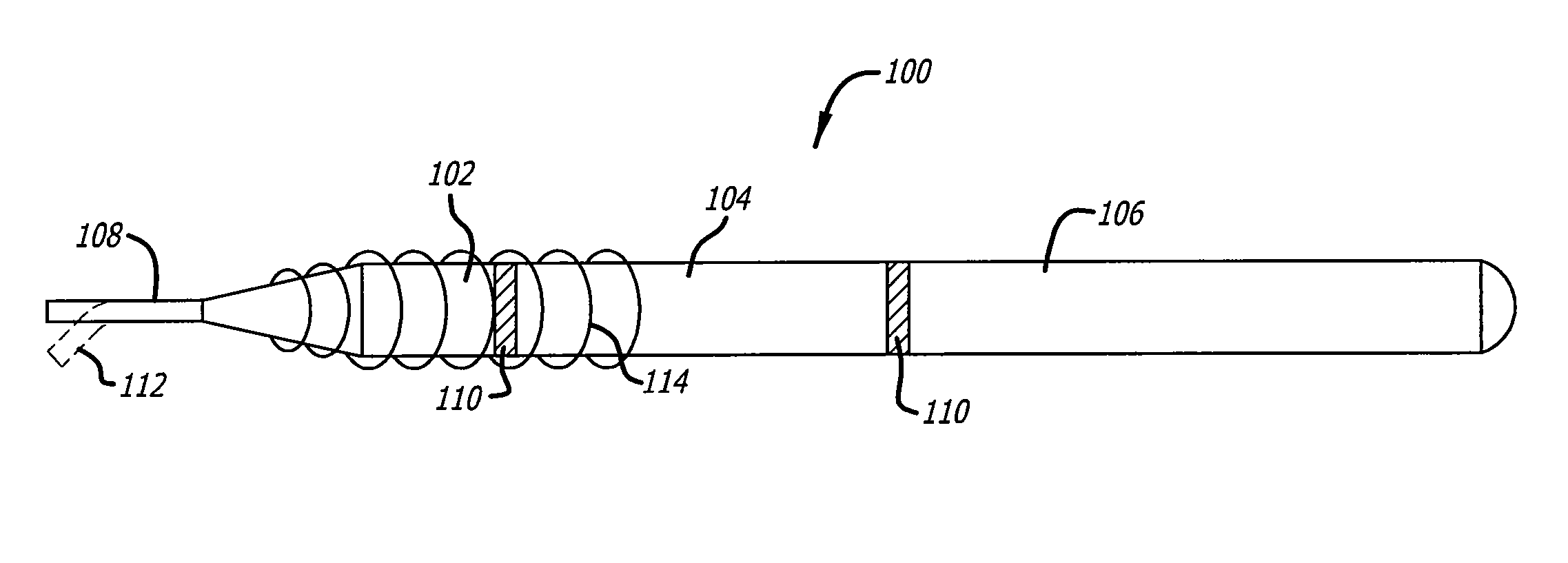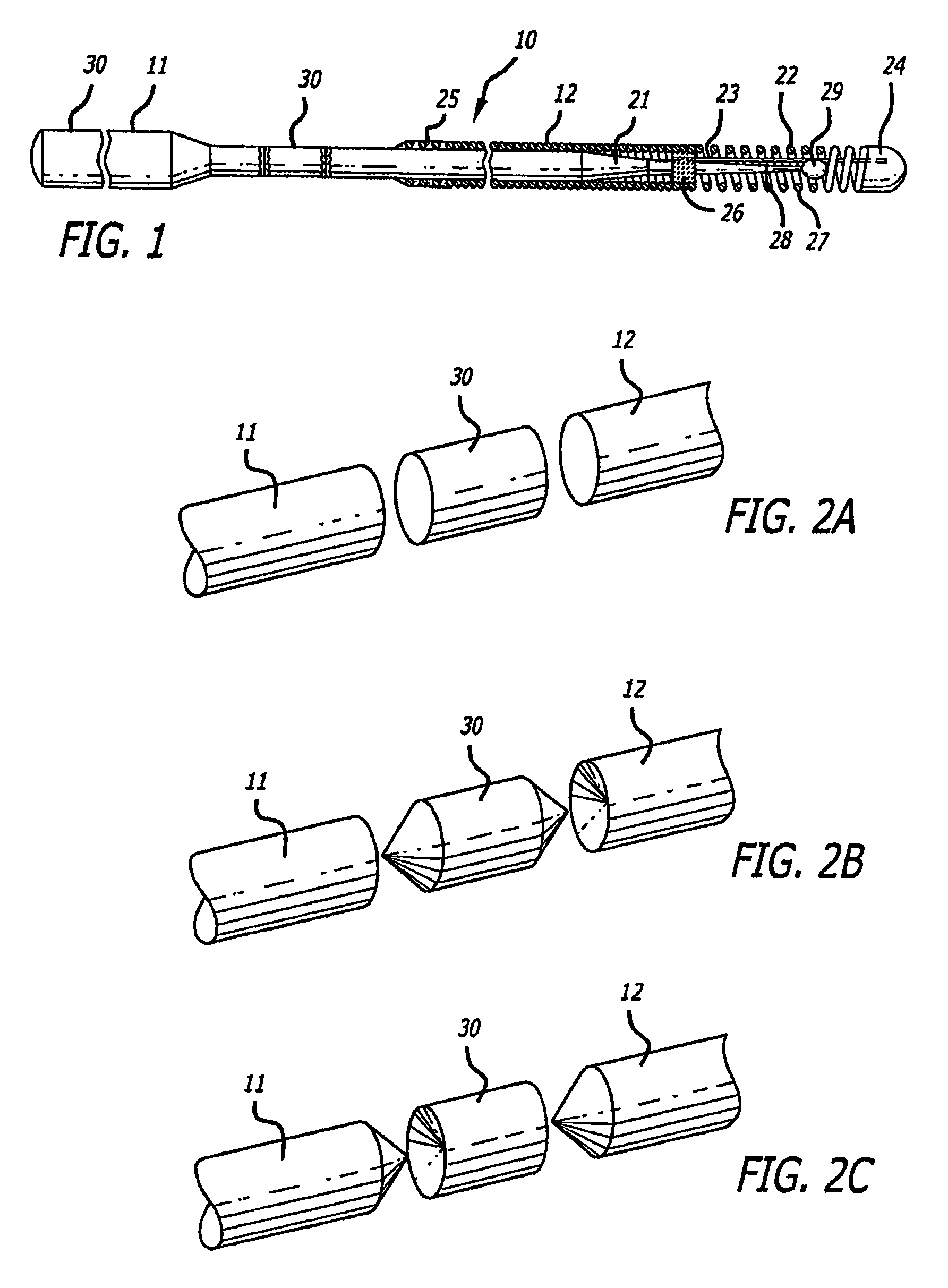Guide wire with core having welded wire segments
a technology of guide wire and welded wire segments, which is applied in the direction of guide wires, catheters, diagnostic recording/measure, etc., can solve the problems of difficult if not impossible direct welding of stainless steel to nitinol, and achieve the effect of improving the overall torqueability and pushability of the guide wire, enhancing compressive, tension and torsion strength, and different structural and strength characteristics and advantages
- Summary
- Abstract
- Description
- Claims
- Application Information
AI Technical Summary
Benefits of technology
Problems solved by technology
Method used
Image
Examples
Embodiment Construction
[0028]FIG. 1 illustrates a guide wire 10 embodying features of the invention that is adapted to be inserted into a patient's body lumen, such as an artery or vein. The guide wire 10 comprises an elongated, relatively high strength proximal core section 11, and a relatively short flexible distal core section 12. The distal core portion 12 has at least one tapered section 21 which becomes smaller in the distal direction. A helical coil 22 is disposed about the distal core section 12 and is secured by its distal end to the distal end of shaping ribbon 23 by a mass of solder which forms rounded plug 24 when it solidifies. The proximal end of the helical coil 22 is secured to the distal core section 12 at a proximal location 25 and at intermediate location 26 by a suitable solder. The proximal end of the shaping ribbon 23 is secured to the distal core portion 12 at the same intermediate location 26 by the solder. Preferably, the most distal section 27 of the helical coil 22 is made of ra...
PUM
| Property | Measurement | Unit |
|---|---|---|
| diameter | aaaaa | aaaaa |
| diameter | aaaaa | aaaaa |
| outer diameter | aaaaa | aaaaa |
Abstract
Description
Claims
Application Information
 Login to View More
Login to View More - R&D
- Intellectual Property
- Life Sciences
- Materials
- Tech Scout
- Unparalleled Data Quality
- Higher Quality Content
- 60% Fewer Hallucinations
Browse by: Latest US Patents, China's latest patents, Technical Efficacy Thesaurus, Application Domain, Technology Topic, Popular Technical Reports.
© 2025 PatSnap. All rights reserved.Legal|Privacy policy|Modern Slavery Act Transparency Statement|Sitemap|About US| Contact US: help@patsnap.com



